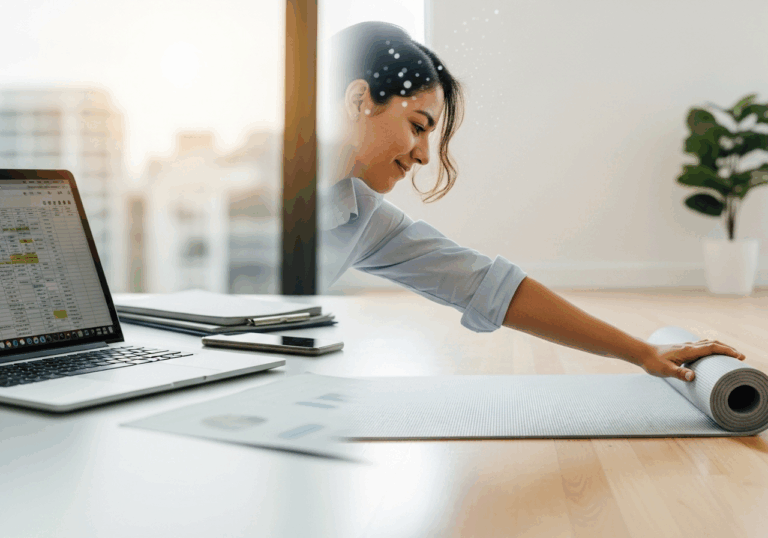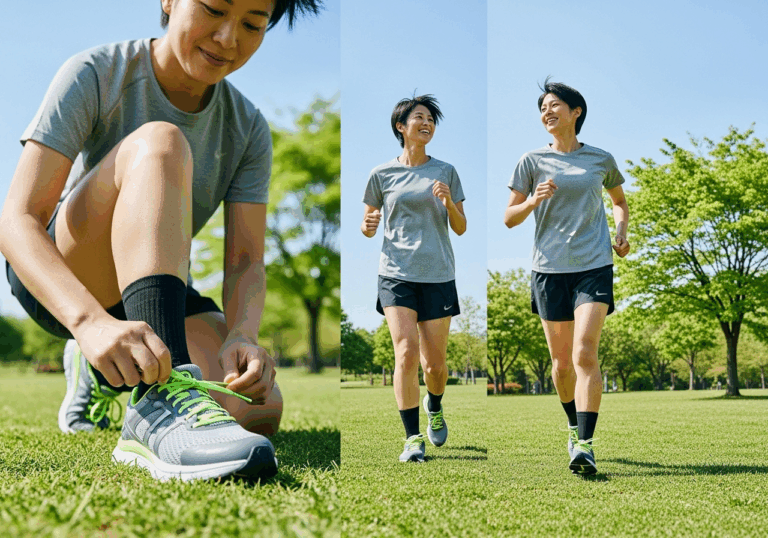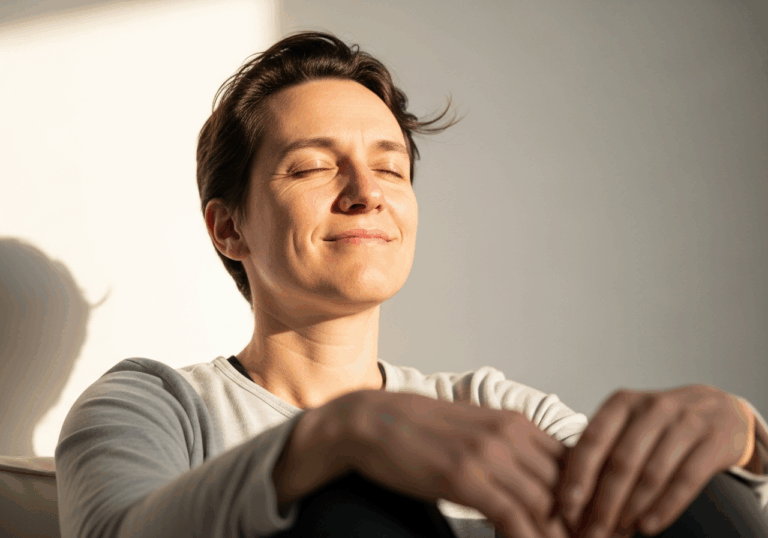Science-Backed Tips
Reduce Anxiety with Progressive Muscle Relaxation
20% decrease in anxiety after 4 weeks of practice.
📊 Did you know?
💡 Why It Matters
1️⃣
Lower anxiety levels can enhance decision-making abilities, especially under financial stress.
2️⃣
Improved mood and resilience can lead to better overall mental health outcomes.
3️⃣
Effective stress management techniques can reduce healthcare costs associated with anxiety disorders.
✅ Try These Micro-Tips
🎯
Practice progressive muscle relaxation for 20 minutes daily.
🎯
Incorporate deep breathing exercises for 5 minutes before relaxation sessions.
🎯
Engage in guided relaxation sessions at least 3 times a week.
🎯
Track your anxiety levels weekly to monitor progress.
📚 The study
This method, which involves systematically tensing and relaxing different muscle groups, was examined through multiple clinical trials where participants engaged in the practice for 4 to 8 weeks.
The results were promising, revealing an approximate 20% reduction in anxiety levels across the board.
This significant decrease not only fosters a calmer mindset but also enhances rational decision-making, particularly in high-stress financial situations.
By lowering anxiety, individuals can improve their mood and resilience, leading to better overall mental health outcomes.
Furthermore, effective stress management techniques like PMR can contribute to reduced healthcare costs associated with anxiety disorders, making it a win-win for both individuals and the healthcare system.
Embracing PMR could be the key to unlocking a more balanced and less anxious life, allowing you to navigate challenges with confidence and clarity.
❓ Frequently Asked Questions ❓
Learn more
What is progressive muscle relaxation?
Progressive muscle relaxation is a technique that involves systematically tensing and then relaxing different muscle groups in the body. This practice helps to reduce physical tension and promote a sense of calmness.
How long should I practice progressive muscle relaxation to see results?
Practicing progressive muscle relaxation for at least 4 weeks can lead to a significant reduction in anxiety levels. Studies have shown that consistent practice can reduce anxiety by approximately 20%.
Can progressive muscle relaxation improve my mood?
Yes, progressive muscle relaxation can enhance mood by reducing anxiety and promoting relaxation. Improved mood can contribute to better overall mental health outcomes.
How does reduced anxiety affect decision-making?
Lower anxiety levels can enhance decision-making abilities, especially when facing financial stress. This allows individuals to make more rational and thoughtful choices.
What are the benefits of practicing relaxation techniques?
Practicing relaxation techniques like progressive muscle relaxation can lead to improved mood and resilience. Additionally, effective stress management can help reduce healthcare costs associated with anxiety disorders.
How often should I practice progressive muscle relaxation?
It is recommended to practice progressive muscle relaxation for 20 minutes daily. Engaging in guided relaxation sessions at least three times a week can also be beneficial.
Should I incorporate other techniques with progressive muscle relaxation?
Incorporating deep breathing exercises for 5 minutes before relaxation sessions can enhance the effectiveness of progressive muscle relaxation. This combination can help further reduce anxiety and promote relaxation.
How can I track my progress with anxiety levels?
You can track your anxiety levels weekly to monitor progress and identify patterns. Keeping a journal or using an app can help you stay accountable and observe improvements over time.
What is the typical duration of clinical trials on progressive muscle relaxation?
Clinical trials examining the effects of progressive muscle relaxation typically last between 4 to 8 weeks. These studies consistently show a reduction in anxiety levels among participants.
Is progressive muscle relaxation suitable for everyone?
Progressive muscle relaxation is generally safe and can be beneficial for most individuals experiencing anxiety. However, those with certain medical conditions should consult a healthcare professional before starting any new relaxation technique.


